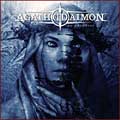BURNING SKIES (uk) - Desolation (2006)

Label : Lifeforce Records / Overcome Distribution
Sortie du Scud : 30 octobre 2006
Pays : Angleterre
Genre : Deathcore
Type : Album
Playtime : 10 Titres - 30 Mins
Après Murder By Means Of Existence, sorti en 2004, voici le quintet britannique de BURNING SKIES qui revient avec leur deuxième album, Desolation. Que les amateurs de point de croix passent leur chemin, on ne fait pas dans la dentelle ici. Après une intro instrumentale électronique qui n’a pas de réel intérêt (mais pourquoi toujours en mettre une maintenant ? Parce que ça évite de faire un titre en plus pour arriver jusqu’à dix ? C’est d’autant plus bizarre pour un groupe qui n’utilise pas la queue d’un sample par la suite), on entre dans le vif du sujet. « RKD » annonce la couleur. Le beat blast furieux des premières mesures ainsi que le chant guttural de Merv laissent penser, à raison, que l’on va avoir le droit à un cocktail de rage et de hargne. Et c’est ce que l’on peut vérifier tout au long de l’écoute de l’album.
Les titres s’enchaînent et se ressemblent, à tel point qu’on ne voit pas forcément les transitions entre les différents morceaux. Pourtant, l’impression de lassitude ne s’installe pas. On en redemande, même. Les plans simples se succèdent pour donner des morceaux qui, loin d’être d’une complexité effrayante, n’en sont pourtant pas de simples portions de brutalité et arrivent à perdre l’auditeur à la première écoute. On rentre pourtant rapidement dans l’univers de BURNING SKIES et cette impression disparaît en même temps.
Desolation, même s’il impose BURNING SKIES comme un groupe à suivre, n’est pas un modèle d’originalité. Les plans alignés sont pris parmi les poncifs du genre et mélangé à la sauce BS. Mais c’est justement cette sauce qui fait la petite différence. On sait qu’on entend des plans déjà vus, des enchaînements maintes fois utilisés, des riffs cent fois écoutés, mais cela n’empêche qu’on y prend goût. Et ce concentré d’énergie rentre dans les oreilles, jusqu’à ne plus en sortir. Un morceau comme « Desolation (For The Denial Of Ignorance) » est un petit bijou qui s’écoute encore et encore. Mais ce n’est pas le seul (on peut citer « Fairytale Supremacy » ou encore « The Sweet Sound Of Violence »). La courte durée de l’album aidant aussi dans ce sens. On pourra aussi noter des riffs assassins à la mode CRO MAGS des rythmes soutenus à la double grosse caisse que n’auraient pas reniés SEPULTURA en son temps ou encore GOJIRA aujourd’hui.
Au final, Desolation n’est sans doute pas l’album ultime pour ceux qui recherche l’innovation à tous prix, mais c’est un album plein de rage qui ne demande qu’à être partagée.
Ajouté : Mardi 28 Novembre 2006
Chroniqueur : Wong Li
Score :    
Lien en relation: Burning Skies Website
Hits: 14753
|













